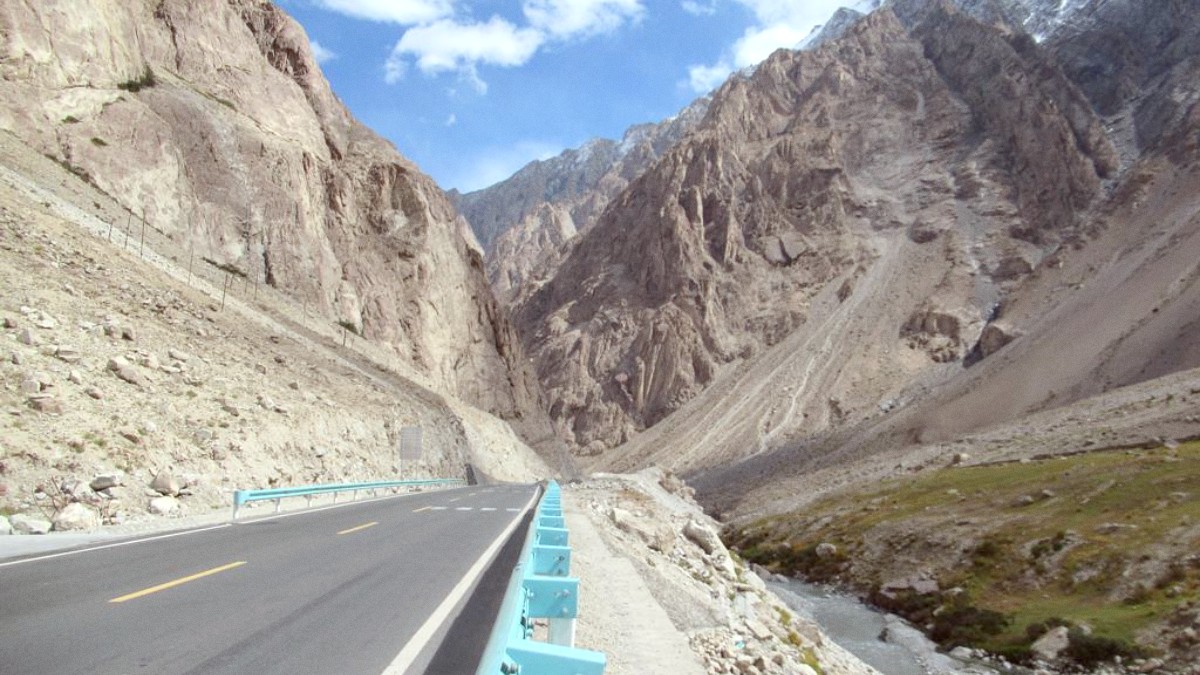
Pakistan
If you have a short layover in the capital region before heading north, make the most of it. For a weekend getaway focused on Hunza Valley from Gilgit, allow 2-3 days.
A short visit includes iconic landmarks and initial explorations.
Longer trips allow for exploration of the region.
This plan covers Islamabad to Hunza and return. It includes cultural immersion and natural beauty. Expect domestic flights or overnight bus travel. Book experiences via GetYourGuide.
This itinerary extends beyond the first week, covering Islamabad, KKH, and Skardu, then returning. It includes distinct cultural and dramatic mountain scenery of Baltistan.
For cultural immersion and extensive trekking, consider focusing on specific valleys like Hunza, Nagar, or Phander for a longer period (e.g., 2-4 weeks). Rent a guesthouse room for a month.
Beyond the KKH, Pakistan offers diverse regions. Consider adding destinations like the Swat Valley or exploring further into Balochistan for a more varied experience.
This section provides a summary of ideal routes for more extensive exploration.
Fly into Islamabad, drive the KKH north to Hunza and Khunjerab Pass for historical and natural beauty.
From Gilgit, travel or fly to Skardu to explore Baltistan's distinct culture and mountain scenery.
Combine the KKH experience with Baltistan, then return to Islamabad for a comprehensive journey.
Tailor your Karakoram Highway itinerary to your specific passions.
Concentrate on ancient forts: Baltit and Altit. Explore rock carvings near Shatial and Gilgit. Walk through traditional villages like Ganish to observe architecture and cultural preservation.
Prioritize staying in homestays for local cooking. Eat at local dhabas and eateries in Hunza and Gilgit. Sample regional dishes like Gyal, Prapu, and local trout. Visit markets for produce.
Prioritize challenging treks like Fairy Meadows (Nanga Parbat views), Rakaposhi Base Camp, or Patundas Meadow. Include jeep safaris to remote valleys like Naltar. Explore glaciers.
Include easy walks around Karimabad and Altit villages. Take a boat ride on Attabad Lake. Keep fort visits engaging. Choose comfortable accommodations with outdoor space. Focus on scenic drives.
Focus on the restoration work at Baltit and Altit Forts, which showcase traditional building techniques. Explore the traditional village architecture in older settlements like Ganish and Altit village.
While formal retreats are limited, focus on the serene mountain environment for quiet contemplation and meditation. Engage respectfully with locals to understand their spiritual practices and beliefs.
Focus on the restoration of Baltit and Altit Forts, showing traditional building techniques and village architecture.
Seek serene mountain environments for contemplation. Engage with locals to understand their spiritual practices.
Visit artisan workshops to observe traditional crafts. Explore local markets for unique handmade goods and produce.
Your budget influences your travel choices along the KKH.
Utilize public buses and shared jeeps. Stay in basic guesthouses or dorms. Eat at local dhabas and street food. Prioritize free natural attractions. Carry a reusable water bottle.
Mix shared and private transport for convenience. Stay in comfortable mid-range hotels or well-regarded guesthouses. Enjoy a mix of local restaurants and hotel dining. Include a few guided day trips or hire local guides for specific attractions.
Hire a private vehicle with a dedicated driver for the entire trip. Stay in Serena Hotels or the best available boutique resorts. Enjoy fine dining experiences at hotels and exclusive local restaurants. Arrange bespoke tours, domestic flights to save time, and private guides for all activities.
Travel during shoulder seasons (April-May, Sept-Oct) for lower prices and fewer crowds. Book accommodation directly with guesthouses or through local operators for potential discounts. Cook some of your meals if your accommodation offers self-catering facilities.
Effective cost management involves planning ahead for major expenses and making conscious choices on the ground. Research transportation costs and accommodation options beforehand.
All sections of the KKH are accessible, including Khunjerab Pass. Ideal weather for high-altitude treks. Valleys are lush green. Long daylight hours.
Stunning golden foliage in the valleys, pleasant temperatures, clear skies. Khunjerab Pass is usually still open. Exceptional for photography and cultural festivals.